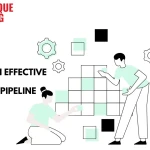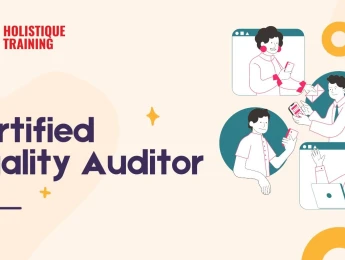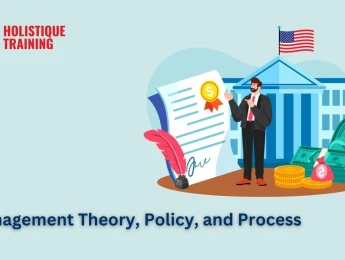Any organisation involved in the engineering industry will undoubtedly have a strong focus on maintaining high standards of engineering excellence. Engineering excellence refers to productivity and the potential to deliver outstanding results. Many factors and skills contribute to engineering excellence; without these, any engineering project is almost bound to fail.
To develop engineering excellence, professionals must have a strong skill set and several particular competencies. Some of the most crucial skills are the ability to communicate effectively and work with a range of other professionals and clients. Effective communication ensures that the engineers and the client agree on the project and eliminates the potential for miscommunications and mistakes.
Furthermore, engineers must be willing and have the opportunity to engage in continuous improvement. This is where the professionals strive to develop their knowledge and practical skills to provide better service, but the business must also provide them with the ability to do so through constructive feedback and training.
Upon completion of this course, participants will be able to:
- Understand the importance of excellence within the role of engineering.
- Explore the typical responsibilities, skills, and competencies of a successful engineer.
- Identify the various roles of an engineer depending on the organisation and how the standard of excellence may vary within them.
- Develop strong communication skills to aid in engaging with clients, shareholders, and other important individuals.
- Recognise personal strengths and weaknesses and continuously strive for improvement.
- Comprehend the different stages of a project and how excellence can be achieved throughout.
- Assess the economics of engineering and how to deliver ideal results best.
This course is designed for anyone within the engineering industry, including project management. It would be most beneficial for:
- Operations Managers
- Senior Engineers
- Project Managers
- Project Engineers
- Planning and Development Directors
- Communication Managers
- Senior Executives
This course uses a variety of adult learning styles to aid full understanding and comprehension. Participants will review real-world examples of established organisations and highlight their individual approaches to engineering excellence and how these have influenced their success.
The participants will be able to partake in various learning methods and exercises, including seminars, discussions, video materials and practical activities. This combination of methods will guarantee that the participants are able to fully develop their understanding of the taught content and any related practical skills.
Day 5 of each course is reserved for a Q&A session, which may occur off-site. For 10-day courses, this also applies to day 10
Section 1: Introduction to Engineering Excellence
- Defining what is meant by the term ‘engineering excellence’.
- Understanding the necessity and importance of engineering excellence for an individual and in a business setting.
- Identifying the typical skills, responsibilities, and competencies of an engineer.
- Examining the different types of engineering roles and how the standards of excellence may change within them.
Section 2: Collaboration and Communication
- The vitality of effective communication within an engineering role or business.
- Utilising clear and concise communication to discuss aspects of projects with the necessary individuals.
- Merging the use of language and body language to promote a project to superiors and investors to be granted a higher budget or resources.
- Successfully working alone or within a team to achieve an ideal outcome.
- Adjusting tone and language to resolve disputes and settle conflict.
Section 3: Continuous Improvement
- Ensuring a constant and continuous strive for personal improvement.
- Engaging with superiors and colleagues to receive constructive feedback on the potential for improvement.
- Reflecting on personal strengths and weaknesses and creating a plan for self-improvement.
- Providing rewards and incentives to engineering employees to encourage outstanding work and development.
- Offering training and coaching opportunities to employees who may be lacking in certain aspects.
Section 4: Delivering Results
- Exploring the stages of a project and what steps must be taken to achieve ideal results.
- Engaging with all involved parties to innovate promising ideas and create action plans expanding on these.
- Working alongside other professionals to manage and progress through the project lifecycle.
- Regularly communicating with the client to ensure the project is satisfactory and make any necessary adjustments.
Section 5: Economics of Engineering
- Recognising the financial costs of engineering excellence.
- Understanding the consequences of poor engineering excellence.
- Carefully managing resources, assets, time, and labour to ensure the project is meeting deadlines.
- Assessing when it is appropriate to financially invest in certain skills, competencies and certifications.
Upon successful completion of this training course, delegates will be awarded a Holistique Training Certificate of Completion. For those who attend and complete the online training course, a Holistique Training e-Certificate will be provided.
Holistique Training Certificates are accredited by the British Assessment Council (BAC) and The CPD Certification Service (CPD), and are certified under ISO 9001, ISO 21001, and ISO 29993 standards.
CPD credits for this course are granted by our Certificates and will be reflected on the Holistique Training Certificate of Completion. In accordance with the standards of The CPD Certification Service, one CPD credit is awarded per hour of course attendance. A maximum of 50 CPD credits can be claimed for any single course we currently offer.
- Course Code IND14-108
- Course Format Classroom, Online,
- Duration 5 days









